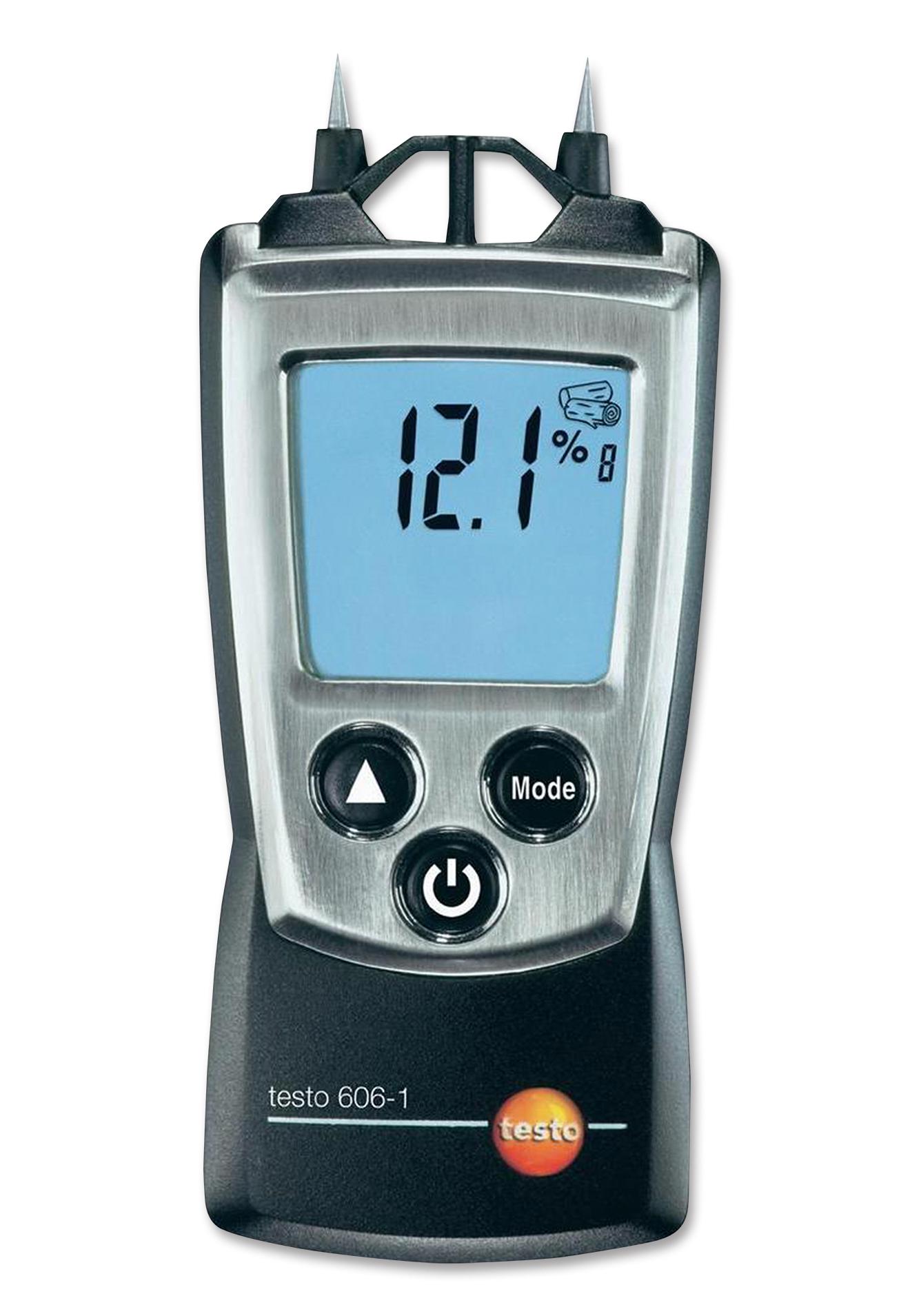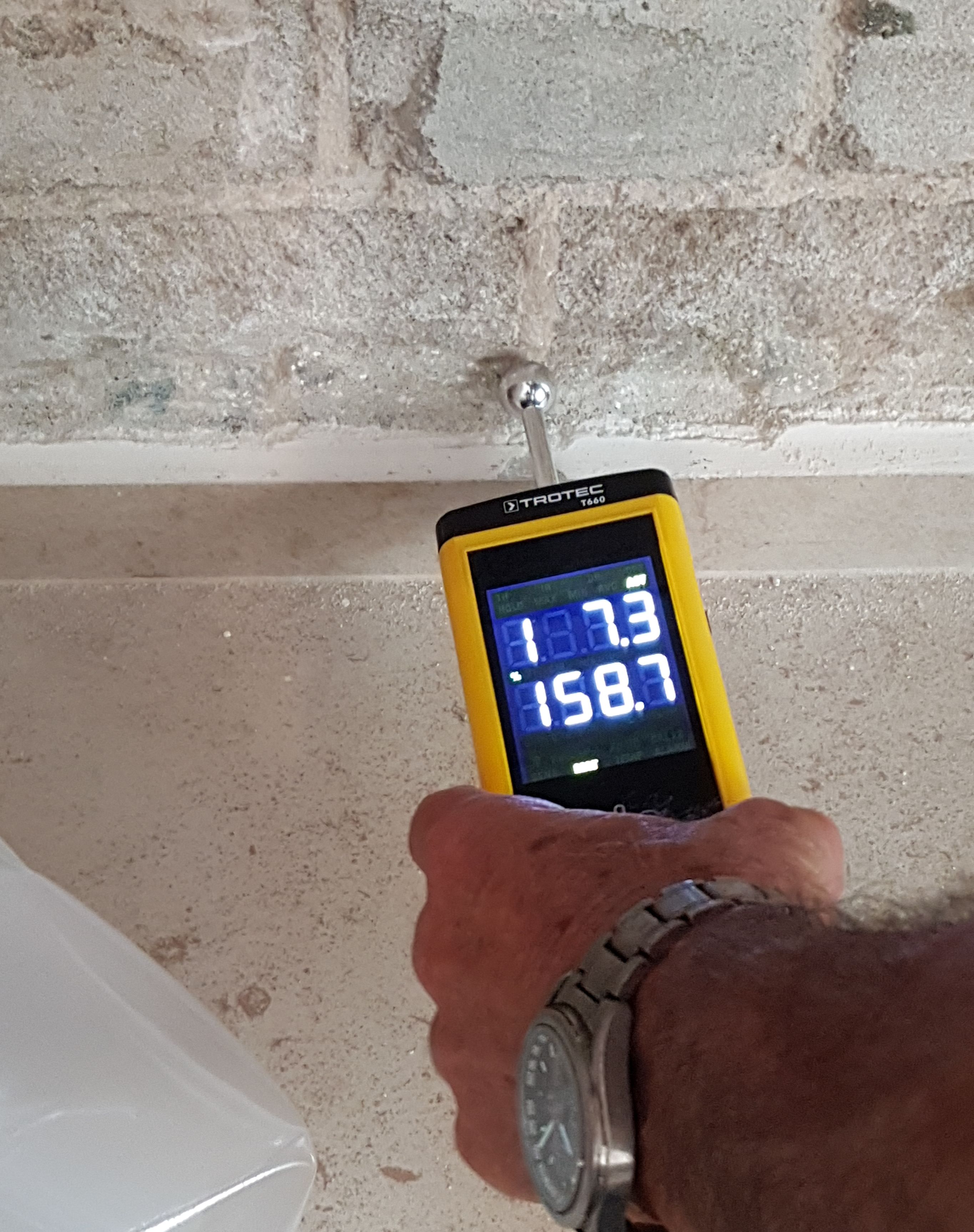Why Every House Owner Requirements a Moisture Meter: Key Benefits and Attributes
Why Every House Owner Requirements a Moisture Meter: Key Benefits and Attributes
Blog Article
The Ultimate Overview to Moisture Meters: A Comprehensive Summary and Just How They Can Save You Money
Dampness meters serve as vital devices in spotting and checking moisture content in materials, helping in stopping costly damages and making certain the quality of products. Recognizing the nuances of different kinds of moisture meters, their applications, and the potential cost-saving advantages they provide can be a game-changer for companies and professionals alike.
Sorts Of Wetness Meters
One typical kind is the pin-type wetness meter, which measures the electrical resistance in between two pins placed into a material. Pinless dampness meters, on the other hand, use electro-magnetic sensor plates to scan a larger area without creating damages to the material's surface.

Infrared moisture meters measure the thermal buildings of a material to determine its dampness web content non-invasively, making them helpful for applications where pin or pinless meters may not be ideal. Recognizing the different kinds of dampness meters readily available can assist markets choose the most suitable device for their particular moisture measurement requirements.

Advantages of Utilizing Moisture Meters
Moisture meters offer invaluable advantages in properly evaluating and monitoring wetness levels in varied products and atmospheres. One of the main advantages of using wetness meters is the avoidance of possible damage created by excess dampness.
In addition, utilizing moisture meters can lead to boosted power efficiency. In farming settings, wetness meters play a critical duty in optimizing crop returns by allowing farmers to monitor dirt dampness degrees and make informed irrigation choices.
Exactly How to Pick the Right Dampness Meter
Choosing the proper moisture meter includes considering crucial factors such as material compatibility, measurement array, and calibration accuracy. When selecting a dampness meter, it's vital to ensure that the meter appropriates for the specific material you will certainly be testing. Different materials have differing electric homes that can affect moisture analyses, so selecting a meter designed for your material is essential for accurate outcomes. In addition, consider the dimension range of the dampness meter. Make certain that the meter can identify moisture levels within the array needed for your applications. Calibration precision is an additional vital element to bear in mind. Go with a wetness meter with reputable calibration to guarantee exact and regular analyses. Some meters may require periodic calibration adjustments, so comprehending the calibration process is necessary. By very carefully evaluating these elements, you can pick a wetness meter that satisfies your needs and offers precise moisture dimensions for your jobs.
Proper Strategies for Moisture Meter Use

Expense Financial Savings With Wetness Meter Applications
Exactly how can the strategic usage of moisture meters lead to substantial cost savings throughout numerous industries? In the agriculture market, dampness meters help in determining the ideal time for collecting plants, protecting against over-drying or excess wetness that can affect the final item's quality.
Likewise, in building and construction, moisture meters assist stop pricey problems by discovering wetness look here degrees in building products, such as wood or concrete, which can cause architectural problems otherwise addressed immediately. By recognizing trouble locations early, specialists can take rehabilitative steps to avoid comprehensive repair work or substitutes, ultimately saving money and time.
Moreover, in the food processing market, dampness meters are crucial for keeping track of item quality and ensuring conformity with security laws. By properly determining moisture web content in food products, manufacturers can protect against putridity, maintain quality, and minimize waste, causing significant expense financial savings. Overall, the tactical application of dampness meters is an important financial investment that can cause substantial expense decreases and improved effectiveness throughout different sectors.
Final Thought
In verdict, moisture meters are beneficial devices for spotting and measuring moisture levels in numerous materials. By utilizing the best moisture meter and following correct methods, customers her comment is here can successfully stop pricey problems brought on by excess moisture. Investing in a top quality dampness meter can cause significant expense financial savings in the future by determining potential problems early and enabling punctual remediation. Eventually, dampness meters are important tools for maintaining the stability and long life of products and structures.
Wetness meters offer as vital tools in identifying and checking moisture material in products, helping in preventing costly problems and making certain the high quality of products. Infrared moisture meters measure the thermal homes of a product to determine its moisture web content non-invasively, making them helpful for applications where pin or pinless meters may not be appropriate.Wetness meters supply vital benefits in accurately examining and keeping track of dampness levels in diverse products and great site settings. In farming settings, moisture meters play a vital role in maximizing crop yields by making it possible for farmers to keep track of soil moisture degrees and make notified irrigation decisions.In final thought, dampness meters are useful devices for detecting and measuring moisture degrees in different materials.
Report this page